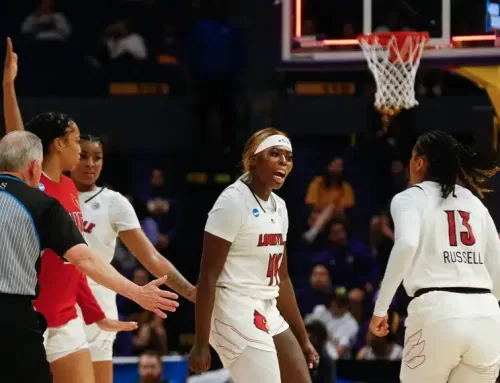No glove, no love from U of L students. The university was recently ranked 16th out of 140 schools in a sexual health education index, a new record for the university. The Trojan Sexual Health Report Card, now in its ninth year, is the only sexual health index of its kind for American colleges and universities.
The rankings are based on a number of criteria determined by research and rankings firm Sperling’s Best Places, who conducted the study on behalf of Trojan. Factors considered include hours of operation, contraceptive availability, STI testing, outreach, quality of information and sexual assault resources.
Bert Sperling, CEO of Sperling’s Best Places, said that though U of L’s ranking was impressive, there are a few things that the school could do to improve.
“The pros and cons of the different types of contraception could be improved a little bit on the website,” he said. “And if it’s original information as opposed to Go Ask Alice! (a young adult health program at Columbia University), that might help a little too.”
He also suggested that the university centralize its information about mens’ and womens’ sexual health into one webpage, so students did not have to dig for it.
“In all of the 140 schools we are looking at, there is more consistency of excellence. The competition is getting tighter, so smaller things are having a big impact,” said Sperling.
Sperling said that one of those differences can be the availability of information when it is needed most: the University of Oregon, which ranked just below U of L on this year’s index, recently put out an app. Students can enter what sexual activity they want to engage in, and the app will give them their safety options.
The University of Arizona, which ranked fourth, takes a different approach. Their student newspaper, The Daily Wildcat, has been running a weekly column on sexual health for 10 years. Students can submit their specific questions, and have them answered by a sexual health expert.
For the past four years, U of L has performed consistently well, always ranking in the top 40, and usually within the top 20. This year, the university placed better than five of the eight Ivy League schools. The University of Kentucky, by contrast, has hovered around 50, ranking 48th this year.
“If I were giving you a letter grade, I would say the University of Louisville would get an A-minus, and the University of Kentucky is getting a solid B,” said Sperling. “They are not doing as good a job as (U of L) doing HIV and STI testing, or getting students engaged.”
Katrina Kaufman, senior program coordinator for the Health Promotion office, said that she and her colleagues are very pleased about the improvement in the score.
“We definitely feel like this is a big improvement, but we continue to look for the newer, better ideas that get students the resources and information that they need,” she said.
One new initiative is Hot Spots, a collection of sexual health materials including female and male condoms, dental dams and lubricant. Hot Spots can be put in any dorm floor of any dorm at the request of any student or RA. Once placed, any student can come by at any hour and take what he or she needs. There are currently 17 around campus.
The office has also recently focused on coordinating outreach programs in order to educate students, not only about safer sex, but also sexuality and relationships more broadly. The office employs a full-time sexual health adviser to coordinate these programs.





